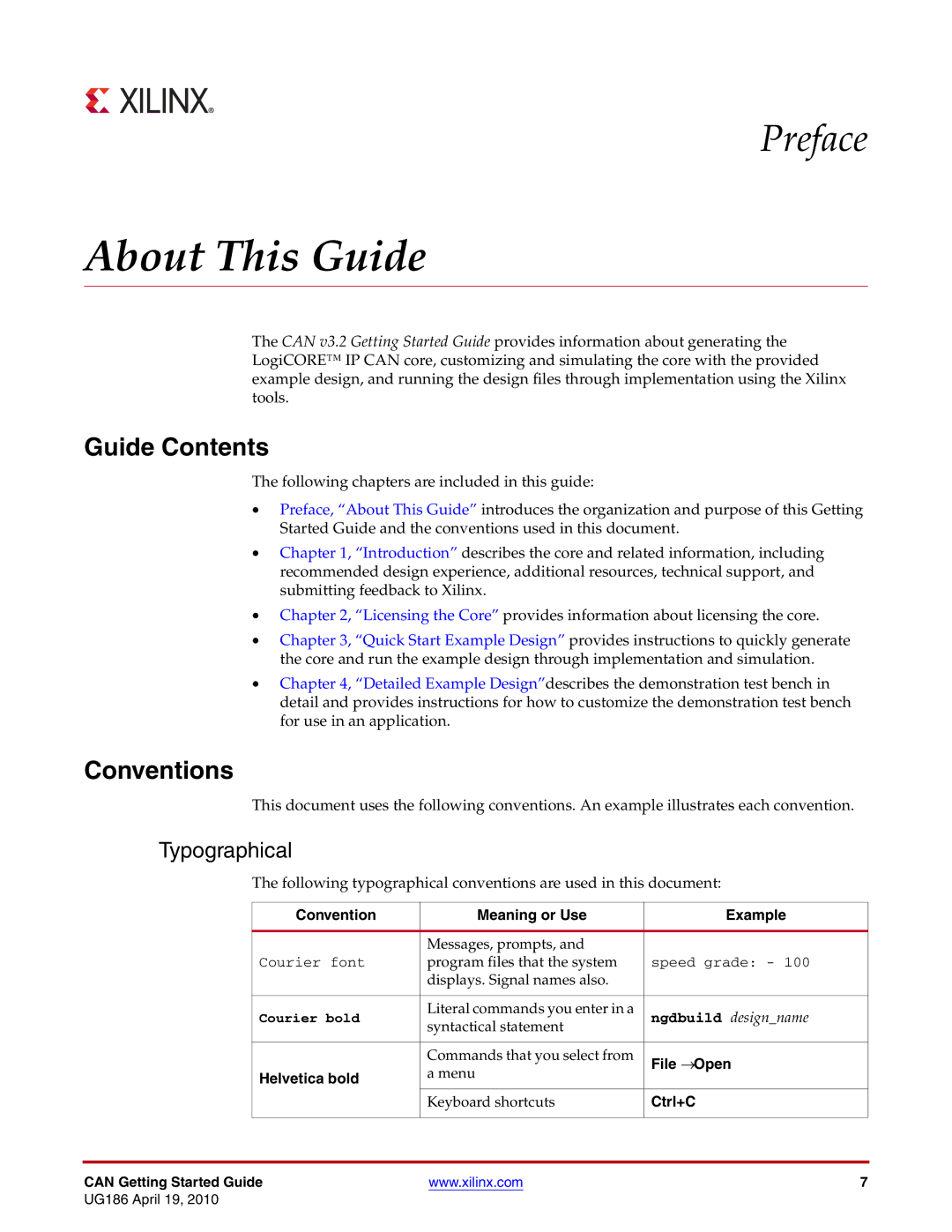
Preface
About This Guide
The CAN v3.2 Getting Started Guide provides information about generating the LogiCORE™ IP CAN core, customizing and simulating the core with the provided example design, and running the design files through implementation using the Xilinx tools.
Guide Contents
The following chapters are included in this guide:
•Preface, “About This Guide” introduces the organization and purpose of this Getting Started Guide and the conventions used in this document.
•Chapter 1, “Introduction” describes the core and related information, including recommended design experience, additional resources, technical support, and submitting feedback to Xilinx.
•Chapter 2, “Licensing the Core” provides information about licensing the core.
•Chapter 3, “Quick Start Example Design” provides instructions to quickly generate the core and run the example design through implementation and simulation.
•Chapter 4, “Detailed Example Design”describes the demonstration test bench in detail and provides instructions for how to customize the demonstration test bench for use in an application.
Conventions
This document uses the following conventions. An example illustrates each convention.
Typographical
The following typographical conventions are used in this document:
| Convention | Meaning or Use | Example |
|
|
|
|
|
| Messages, prompts, and |
|
| Courier font | program files that the system | speed grade: - 100 |
|
| displays. Signal names also. |
|
|
|
|
|
| Courier bold | Literal commands you enter in a | ngdbuild design_name |
| syntactical statement | ||
|
|
|
|
|
| Commands that you select from | File →Open |
| Helvetica bold | a menu | |
|
| ||
|
|
| |
|
|
|
|
|
| Keyboard shortcuts | Ctrl+C |
|
|
|
|
|
|
|
|
CAN Getting Started Guide | www.xilinx.com | 7 | |
UG186 April 19, 2010 |
|
| |
